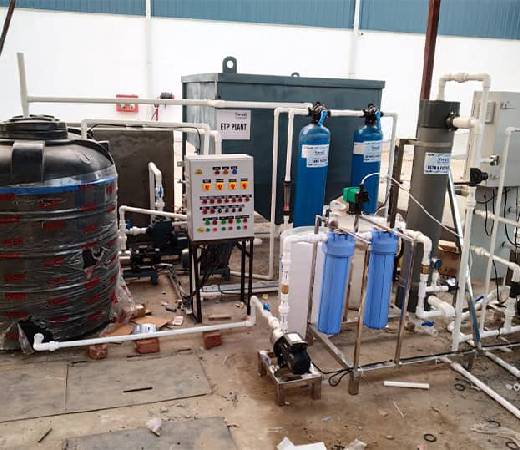
Effluent Treatment Plant Solutions by Swati Water: Cleaner Water, Sustainable Industry
In today’s regulatory environment and growing environmental consciousness, every industrial operation must prioritize wastewater treatment. Swati Water, a leading Effluent Treatment Plant Manufacturer based in India, offers turnkey ETP Plants designed to treat, recycle, and properly dispose of industrial wastewater. As an established Effluent Treatment Plant Manufacturer, Swati Water delivers robust, efficient, and compliant solutions for a wide range of industries.
What Is an ETP Plant & Why It Matters
An Effluent Treatment Plant (ETP Plant) is a facility designed to treat wastewater (effluent) produced by industrial or commercial processes. The objective is to remove harmful contaminants—organic, inorganic, biological, chemical—and then either safely discharge the treated water into the environment or reuse it within industrial operations. Without a proper ETP, industries face legal penalties, environmental damage, and higher operational costs.
Benefits of deploying a well-designed Effluent Treatment Plant include:
-
Ensuring regulatory compliance (CPCB / SPCB / other environmental bodies), avoiding fines and legal consequences.
-
Protecting local ecosystems and public health by preventing pollution of rivers, lakes, and groundwater.
-
Conserving and reusing water, reducing demand on freshwater supplies.
-
Operational cost savings: lower discharge charges, reuse instead of fresh water procurement, lower environmental risk
-
Supporting sustainability goals, ESG (Environmental, Social, Governance) compliance, improved corporate reputation.
Key Components & Working of an Effluent Treatment Plant by Swati Water
When you choose Swati Water’s Effluent Treatment Plant solutions, you get a system designed for the specific nature & volume of your effluent stream. Common stages include:
-
Preliminary & Primary Treatment
In this stage, large solids, grit, oils & grease are removed. Processes like screening, sedimentation, and pH neutralization are employed to prepare the effluent for subsequent treatment. -
Secondary (Biological) Treatment
Degradation of organic pollutants is carried out using microorganisms. Technologies like the Activated Sludge Process, Trickling Filters, or Membrane Bioreactors come into play. Swati Water designs these based on the organic load and pollutant characteristics. -
Tertiary Treatment / Polishing
To meet stringent discharge norms or reuse requirements, further treatment is needed—filtration, UV/ozone disinfection, reverse osmosis, or activated carbon polishing. This ensures removal of trace contaminants, pathogens, color, etc. -
Sludge Treatment & Disposal
The sediments and biomass generated through the process must be managed. Swati Water’s ETP Plants include sludge thickening, dewatering, and in some cases conversion to useful by-products—ensuring safe disposal or reuse.
Automation, Monitoring & Compliance
Modern ETP Plants from reliable manufacturers include automated control systems, continuous monitoring of key parameters (pH, BOD, COD, TSS etc.), and design so that treated effluent meets CPCB/SPCB or other authority norms. Swati Water, as an ETP Plant Manufacturer, ensures these features are integral.
Why Choose Swati Water as Your Effluent Treatment Plant Manufacturer
Selecting the right ETP Plant Manufacturer is as critical as the plant itself. Here’s what sets Swati Water apart:
-
Custom Design & Capacity Flexibility: Whether your requirement is small-scale or large (KLDs to MLDs), Swati Water tailors its Effluent Treatment Plant solutions to your specific effluent type, flow rate, and pollutant load.
-
Regulatory Expertise: Deep knowledge of environmental regulations ensures your ETP meets or exceeds discharge norms. Swati Water helps clients secure approvals from CPCB, SPCB and other authorities as required.
-
Energy Efficient & Low Maintenance: Efficient designs reduce power, chemical, and manpower consumption. Swati Water’s ETP Plant solutions are built for durability, minimizing downtime and maintenance costs.
-
After-Sales Support: Manufacturing the ETP Plant is only part of the responsibility. Swati Water provides commissioning, operator training, maintenance, AMC (Annual Maintenance Contracts), and technical support to ensure consistent performance.
- Sustainability & Water Reuse: Swati Water emphasizes designs that enable reuse of treated effluent—for cooling, landscaping, boiler feed, etc. This not only conserves water but reduces fresh water costs.
Industries & Applications
Swati Water’s ETP Plants cater to a wide spectrum of industries:
-
Chemical processing & pharmaceuticals (where effluent often includes heavy metals, acidic/basic loads)
-
Textiles, dyeing & printing units (color removal, high COD/BOD)
-
Food & beverage, dairy (organic load, fats & oils)
-
Engineering & metal finishing units
-
Distilleries, tannery, cosmetics, and other high-pollution industries
Each industry has its specific needs in terms of effluent composition, volume variation, regulatory norms; Swati Water’s role as a trusted Effluent Treatment Plant Manufacturer is to understand those needs and deliver accordingly.
Ensuring Best Practices: What to Keep in Mind Before Buying an ETP Plant
To make sure the ETP Plant you procure is effective and future-proof:
-
Detailed Effluent Characterization: Test for BOD, COD, total suspended solids, heavy metals, oils & grease, etc. These dictate what technologies are needed.
-
Correct Capacity Sizing: Overloading leads to failure; under-sizing wastes money.
-
Footprint & Layout: Ensure there’s adequate space, proper placement, construction compatibility.
-
Compliance with Standards: Know the discharge limits applicable to your industry and location.
-
Scalability & Modularity: As your operations grow or load varies, ability to scale or upgrade the plant is an advantage.
O&M Costs & Support: Factor in maintenance, power, chemicals, operator skills, spare parts. Fifteen percent of lifecycle cost comes from these.
Conclusion
An efficient Effluent Treatment Plant isn’t just a regulatory necessity—it’s an investment in sustainability, operational efficiency, and corporate goodwill. As a leading ETP Plant Manufacturer, Swati Water combines technical expertise, customization, compliance, and after-sales support to deliver robust Effluent Treatment Plant systems tailored to your industrial needs. When you choose Swati Water, you're opting for cleaner discharges, water reuse, cost savings, and environmental protection.



















David Martin
20 oct, 2018 - 4:00 pm
Lorem Ipsum is simply dummy text of the rinting and typesetting been the industry standard dummy text ever sincer condimentum purus. In non ex at ligula fringilla lobortis et aliquet.
ReplyJasseca Brown
20 oct, 2018 - 4:00 pm
Lorem Ipsum is simply dummy text of the rinting and typesetting been the industry standard dummy text ever sincer condimentum purus. In non ex at ligula fringilla lobortis et aliquet.
Reply